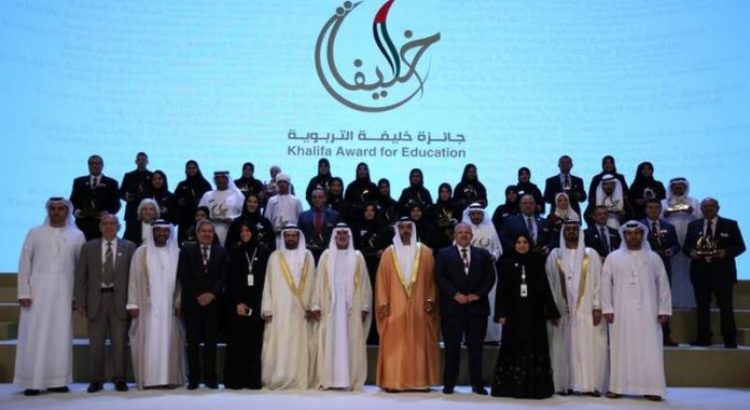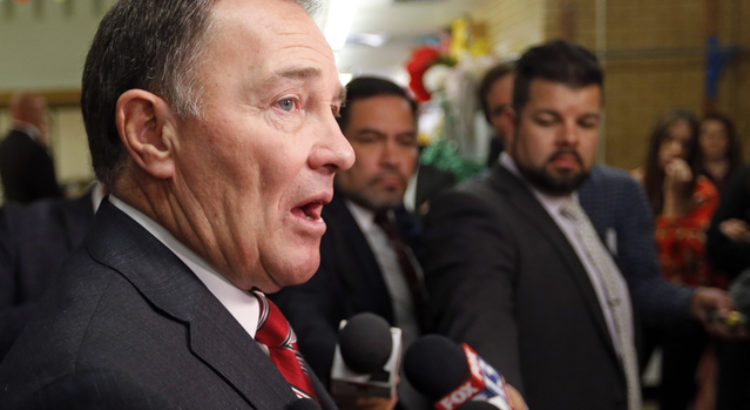Germany/By: Ronnie Ellis CNHI Kentucky/ Source: http://www.dailyindependent.com
Hal Heiner, a charter school supporter and critic of the Kentucky Education Association, resigned Monday as Secretary of the Education and Workforce Development Cabinet to accept an appointment to the Kentucky Board of Education.
Gov. Matt Bevin also appointed his former communications director, Amanda Stamper, and five others to the board effectively remaking the board.
The appointments come after a tumultuous General Assembly which drew thousands of teachers to Frankfort protesting changes in their pension system and lobbying for more funding for public schools and a session during which the Republican-controlled legislature declined to provide funding for charter schools which they authorized last year.
Many teachers were still reeling Monday from comments Bevin made last Friday, saying children were likely — he used the word guarantee at one point — subjected to abuse and danger when some school systems closed to allow teachers to travel to Frankfort for the protests.
Stamper, who is now public relations director for Anthem, also commented on the school closings on Friday by posting on her Twitter account that: “Heavy on my heart are the children who’ve been left at home by themselves because their parents can’t afford the extra childcare expense due to school being cancelled.”
The appointments also come against the backdrop of a state audit of the school’s larges public school system in Jefferson County. That audit — prompted by reports of inappropriate restraints of some children and other problems — should be completed soon, according to Education Commissioner Stephen Pruitt.
Heiner has frequently criticized the Jefferson County system. He also was critical of KEA during the 2017 General Assembly during testimony before the education committee on behalf of charter school legislation.
“I am grateful for Sec. Heiner’s skilled and selfless leadership of the Education and Workforce Development Cabinet over these past two and a half years,” Bevin said in a press release announce Heiner’s resignation as cabinet secretary. “He has overseen a pivotal time of transformation as we strengthen Kentucky’s education system and modernize workforce training. I appreciate his willingness to continue serving Kentucky in a less time-intensive but very important role as a member of the state Board of Education. In his new role, I am confident he will work to ensure that every K-12 student in the commonwealth has the best possible opportunity for success.”
Heiner, a former member of the Louisville Metro Council, was one of four Republican contestants in the 2015 Republican gubernatorial primary won by Bevin who subsequently appointed him Secretary of the Education and Workforce Development Cabinet.
In the press release, Heiner said his time as cabinet secretary has been “the highlight of my career,” a time of progress in workforce readiness and education.
“There is, however, work still to be done, and I look forward to focusing my time and energy on students at the elementary and secondary levels as a member of the Board of Education,” Heiner said.
The seven new appointees join the 11-member Kentucky Board of Education who are appointed by the governor. The other five appointed Monday be Bevin are:
• Laura Timberlake of Ashland is chief operating officer for Big Sandy Distribution/Big Sandy Superstores, a furniture store chain. She serves on the boards of Ashland Alliance and Our Lady of Bellefonte Hospital and holds a bachelor’s degree in human resources from Park University.
• Kathy Gornik of Lexington is the retired co-founder and president of Thiel Audio and has served as chairwoman of the Consumer Electronics Association and on the board of the National Science and Technology Education Partnership. She holds a BA degree in education from the University of Dayton.
• Tracey Cusick of Union is mother to 10 children and has served as a parental advisor to the board with a background in home schooling, private and public schools. She holds an associate’s degree in applied science from State University of New York’s Health Science Center in Syracuse.
• Joe Papalia of Louisville is chief executive officer of Munich Welding and Deposition Technology Innovations. He has a bachelor’s degree in mechanical engineering from Massachusetts Institute of Technology and is a non-voting member of the Council on Postsecondary Education.
• Ben Cundiff of Cadiz was initially appointed by Bevin to an unexpired term. He is owner and operator of Cundiff Farms, an attorney and former chairman and CEO of Trigg County Famers Bank. He holds a degree in chemical engineering from Vanderbilt University.
Ronnie Ellis writes for CNHI News Service and is based in Frankfort. Reach him at rellis@cnhi.com. Follow him on Twitter @cnhifrankfort.
Source:
http://www.dailyindependent.com/news/governor-remakes-ky-board-of-education/article_61106b5c-41a0-11e8-8754-238b72440f96.html












 Users Today : 10
Users Today : 10 Total Users : 35460633
Total Users : 35460633 Views Today : 18
Views Today : 18 Total views : 3419668
Total views : 3419668